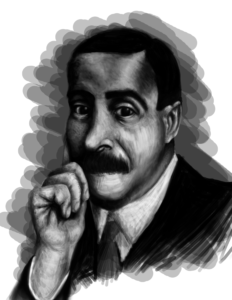
MOLLY VANDENBERG
Special to The Leader
Following the recent surge of interest in the Austrian Jewish author Stefan Zweig, the Zweig lecture series is returning to Fredonia this Fall. “Zweig at Fredonia 2016,” planned for Oct. 3–5, will feature some unique Zweig-related events on campus. This is the fourth time the campus gets to experience this biennial lecture series which takes two years of planning and hard work from both faculty and students.
The first event, on Oct. 3 at 3:30 p.m. in Fredonia’s Reed Library Garden Area, “Zweig and Strauss: A Continuing Conversation,” will especially highlight Zweig’s lifelong passion for music. In particular, it will focus on his collaborative relationship with Richard Strauss in his role as librettist for Strauss’s opera “Die schweigsame Frau” (“The Silent Woman”). There will be a feature panel led by musicologist Matthew Werley which will also include Fredonia School of Music faculty.
Directly following the panel at 5 p.m is the opening of the exhibit “Zweig and Strauss: Artistic Collaboration in a Time of War.” Original manuscript correspondence between Zweig and Strauss is found in Fredonia’s cherished Stefan Zweig Collection, kept in the Archives and Special Collections of Reed Library. This exhibit is co-curated by English professor Birger Vanwesenbeeck and Reed Library archivist Kim Taylor with the assistance of current English undergraduate and graduate students. The exhibit will run from Oct. 3–27.
“It’s interesting because it zooms in on Zweig’s collaboration with the German composer Richard Strauss. That was in 1935. Strauss was officially the head of the Reich’s music chamber. Zweig was Jewish, so as you can imagine, the authorities were not too happy about this collaboration … The letters that we have and other items really tell this story and it’s fascinating to see … Imagine the idea that art could triumph over politics,” said Vanwesenbeeck.
The following day, Oct. 4 at 8 p.m in Rosch Recital Hall, Fredonia School of Music faculty and students will perform selected songs and arias of Richard Strauss that were composed during Strauss’s time as head of the Reichsmusikkammer (Reich Music Chamber) under the Nazi regime. Strauss’s controversial choice of Zweig as librettist ultimately led to his forced resignation from the post by Nazi authorities.
The final event of the series, on Oct. 5 at 6 p.m. in Rosch Recital Hall, will feature acclaimed author George Prochnik, who will be delivering the fourth Biennial Stefan Zweig Lecture. Prochnik is regarded for his biography on Zweig, “The Impossible Exile: Stefan Zweig at the End of the World,” which came out around the same time as Wes Anderson’s film “The Grand Budapest Hotel,” based on Zweig’s fiction.
Fredonia’s Stefan Zweig Collection is home to one of the most vast manuscript collections and documents the life and work of Zweig in the world. Specifically, there are over 6,000 manuscript letters written between 1901 and 1942 to Zweig from over 300 different historically significant people. There are other large Zweig collections in the world, such as at the British Library and at the National Library of Israel. This collection helps place Fredonia on a global platform, as people from all over the world are interested in seeing these manuscripts and items.
“Stefan Zweig … is our single most famous Fredonian. There’s nobody else who is as world famous … People come to this archive from all over the world throughout the year. There are scholars that come in from Europe, scholars that come in from South America, scholars come in from Australia. So this is huge … It’s a great honor to have this collection. It’s also been very interesting to do these events over the past ten years when we’ve really witnessed a global resurgence of interest in Zweig,” said Vanwesenbeeck.
This is the first time people will be flying in from overseas just to attend this series here on campus. It will also be live streaming for those who can’t make it. This is a perfect opportunity for students to take advantage of the resources available right at their fingertips and to become globally involved with those who are also interested in seeing Zweig’s work and his legacy.
